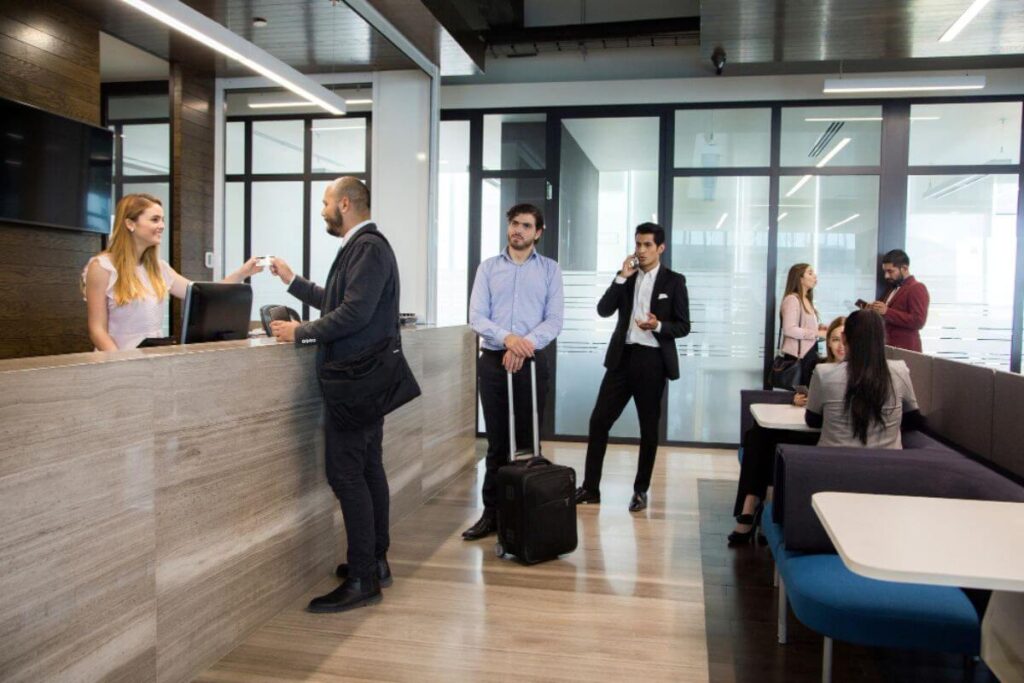Overview
Hotels must balance security, efficiency, and guest experience when choosing between smart gate vs manual entry systems.
Smart gates provide automated, contactless access, reduced labor costs, and data insights, while manual entry offers personalized service, flexibility, and low setup costs.
A hybrid approach often delivers optimal security, convenience, and satisfaction.
In many hotels, lobby access still relies heavily on human-operated doors, reception verification, or security guards, which we call manual entry. But with rising security concerns, many hoteliers now face the choice between a smart gate vs a manual entry for managing guest access.
Hotels in the Philippines have experienced thefts at luxury properties in Makati and Taguig due to weak lobby and guest floor access controls. The Philippine National Police has urged hotels to strengthen security protocols in response to rising event-related burglaries.
Smart Gates
Modern access control systems are evolving beyond simple key cards into fully integrated smart gate solutions. These systems automate identity verification, grant access, and record every transaction, significantly enhancing a hotel’s perimeter security.
Enhanced Security
Advanced technologies such as RFID cards, biometric scans, and facial recognition ensure that only authorized personnel and guests can access specific areas. Digital logging of every entry and exit creates an audit trail, allowing for quick detection of suspicious activity.
Providers like ELID implement these high-tech solutions in the Philippines, helping hotels enhance security while staying compliant with local safety regulations.
Reduced Labor Costs
While the initial setup of an automated entry system represents a capital investment, it leads to considerable savings in the long term. By centralizing guest and staff access control through a system of smart gates, hotels can streamline their front desk operations and reduce the need for constant security personnel staffing at every entrance.
This allows staff to be redeployed from routine monitoring tasks to more value-added activities, such as personalized guest assistance, ultimately reducing overall labor costs and improving staff utilization rates.
Improved Guest Experience
Smart gates allow guests to move seamlessly through the hotel without long waits for verification. Contactless access, whether via mobile credentials or biometric scans, reduces friction at peak times, creating a smoother, more welcoming experience.
Systems from ELID are designed with user-friendliness in mind, ensuring that guests of all ages and tech familiarity can enjoy hassle-free entry.
Operational Efficiency
Integration with a hotel’s property management system allows smart gates to automate room access, floor permissions, and special area restrictions. This reduces the potential for human error and ensures consistency in access control policies.
ELID provides scalable solutions that easily integrate with existing hotel infrastructure, making upgrades or expansions straightforward and minimally disruptive.
Valuable Data Insights
Every entry attempt is digitally recorded, providing both security and business insights. Tracking access times helps hotels identify peak hours, analyze traffic flow, monitor staff attendance, and optimize scheduling, facility layout, and staffing forecasts.
Manual Entry
Before electronic security, manual systems like locks, keys, and security staff were standard. Though less precise than digital systems, they offer advantages rooted in human judgment and oversight.
Personalized Service
A friendly staff member at the door greets guests, offers assistance, and creates a personal, welcoming experience. This human touch is especially valued in luxury hotels or for guests who prefer personal service over self-service technology, fostering comfort and connection.
Adaptability For Complex Issues
If a guest loses their key, an access system fails, or an unusual situation arises, a human can make on-the-spot, non-routine decisions. They can provide a level of empathy and situational awareness that is currently beyond the capabilities of even the most sophisticated automated systems, which is invaluable in emergency response and complex customer service recovery.
Low Setup Cost
Compared to smart gates, manual entry requires minimal initial investment. Traditional locks, keys, or access badges are relatively inexpensive and widely available, making them attractive for smaller hotels or properties with limited budgets. The simplicity of the setup also reduces potential technical issues or downtime that can occur with automated systems.
Job Creation
Manual entry supports local employment by maintaining positions for front desk personnel, security staff, and doormen. These roles not only enhance security but also contribute to the hotel’s service culture. In communities where employment opportunities are a priority, manual systems can provide meaningful work while simultaneously supporting operational needs.
Which Is Better For Your Hotel?
The best approach depends on your business model, customer base, and strategic goals. It requires balancing guest satisfaction with risk management and return on investment (ROI) rather than choosing one option over the other.
Your Hotel’s Brand
Boutique hotels or those emphasizing high-touch luxury might prioritize manual entry to foster personal interaction and a warm guest experience.
Conversely, modern or tech-forward brands, such as business hotels catering to corporate travelers, may emphasize smart gates to convey efficiency, sophistication, and cutting-edge security.
ELID’s portfolio allows hotels to select or combine solutions that reinforce their brand narrative, from sleek automated gates to minimalistic manual integrations.
Your Guest Demographics
Tech-savvy travelers prefer the speed and contactless convenience of smart gates, while older guests or families value human assistance. Hotels can tailor access solutions to guest demographics, balancing convenience, satisfaction, and security.
Hybrid Approach
A hybrid approach blends automated smart gates with human supervision for high-touch or sensitive areas. VIP entrances, concierge zones, or event access can retain staff, while everyday guest flow is handled by smart gates. This ensures security, efficiency, and personalized service.
ELID’s integrated software supports features like Dual Card Mode, requiring both a guest card and an employee escort card for high-security access, combining technology with human oversight.
Key Takeaway
The smart gate vs manual entry debate is about balance, not extremes. Hotels aiming for top security, efficiency, and future-ready operations benefit from robust access control solutions.
Partner with ELID for advanced smart gates, integrated software, and seamless, secure management.
